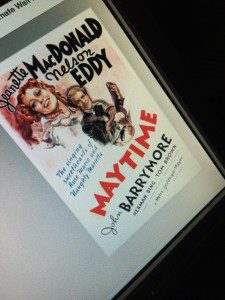 Person of Interest forgot what it was as a television show, and so is dying, soon to be forgotten.
Person of Interest forgot what it was as a television show, and so is dying, soon to be forgotten.
Evidently, the producers of the show could not recollect the likely fan base of a show starring Jim Caviezel as they began to write based on a view of morality best suited for an entirely different group of people. Since Caviezel is most famous as Jesus in Mel Gibson’s Passion of the Christ, many traditional Christians gave the show a look, liked what they saw, only to see the morality decay with the plausibility. The writers did not just forget moral and political reality, they also forgot Jim Caviezel as the writers developed ever more elaborate plots for supporting actors who stop supporting the show and never could act.
Person of Interest began formulaic, but the formula was at least interesting. At some point, it decided to become Whedonesque without the benefit of Whedon: developing an alternative reality featuring battling super computers. It is a problem when a super computer, most often pictured as a blinking red light, shows more acting range than Amy Acker. (Oh Fred!) It is a bigger problem when you kill off the most interesting character in the show at the height of her powers who was played to perfection by Taraji Henson.
And so a show that was enjoyable has failed to develop in good directions and will soon vanish. Where do pop cultural phenomena go when they die? Not Barterra, these are not imaginative archetypes but ephemeral creations toying with archetypes. Instead, I think they become historically interesting, a window to what was taken seriously that we cannot take seriously. They are also a bit sad because many contain the possibility of something more and that more ended up wasted.
Nelson Eddy and Jeanette MacDonald are pop phenoms (just about) forgotten. They were capable of much: Maytime is the movie that inspired the romance that inspired me. Evidently, Sheldon and Davy Vanauken saw this film during the springtime of their love and never forgot it. Van wrote a much better poem than the movie on maytime and both the film and the poem turned out oddly prophetic of the Severe Mercy that God had in store for the couple.
Let us praise Eddy and MacDonald: both could sing. Let us praise them further: both could act (within the limits of the time). Let us mourn: both ended up giving the audience exactly what the audience expected of them and so the films are almost unwatchable today.
And yet they were big: really big.
The present demographic for an Eddy/MacDonald film may be limited to . . . me. I have never met anybody younger than I am who has heard of them or anybody else my age who has watched them. When I watch one of their films, nothing is more sure to drive my Dad, Mom, brother, wife, and children from the room. They are straight pre-war operetta . . . which is taking a genre (the operetta) already having a limited audience and tying it as firmly to its times as a heroine tied to the railroad tracks.
Bing Crosby, a contemporary, proves that you could escape your times and limits. Crosby is played every Christmas (White Christmas!) and some of his films can be watched by a contemporary audience with pleasure (try Road to Singapore to see the future of comedic film created).
What do Person of Interest and Eddy/MacDonald have in common? They are the Scylla and Charybdis of making art, building a business, or running a church: never forget what got you there, but never become stale or trapped by what got you there. Without a vision the art or the project perish, but being held hostage to a stale vision can be just as bad.
A good artist or leader can give the folks what they want. A great artist or leader can give them what they want while teaching them new desires.
Frank Capra still is watchable because he transcends his time. Walt Disney knew this trick as well. Neither Capra nor Disney forget who they were and what their audiences demanded of them. Capra does not abandon his genial populist love of America, even when he is hard on it, and Walt Disney does not trample on the middle class values that made him rich. Both men transcended the limits of their fan base without offending the fan base. Disney made Fantasia and Fantasia did not insult his base, but certainly stretched it. The film would take decades to make back Walt’s investment, but make money it did.
And so I ask myself these two questions:
What is my calling?
How can I be true to that calling and help others to flourish?
I am an educator called to the dialectic: classical and Christian. It would be foolish and presumptuous suddenly to abandon this calling. Is there a way to push the envelope of that calling? Is there a way to transcend my birthdate (1963!) and touch the eternal things? If so, then I (might!) do something more than be “relevant.”
Relevance in ministry as well as art, traps us in the ghetto of the past as surely as Maytime cannot escape the decade when it was made. Instead, God calls us to drive towards eternity . . . to capture in our art and ministry as much as the transcendent things as we can. This will be done in the words, the emotions, and with the assumptions of our time, but it will be so much more.
Maytime is a 1937 film. In 1937 Walt made Snow White. Both films delighted audiences. One film challenged the genre (animation) and remains watchable to this day.
Am I making Maytime or Snow White today?












